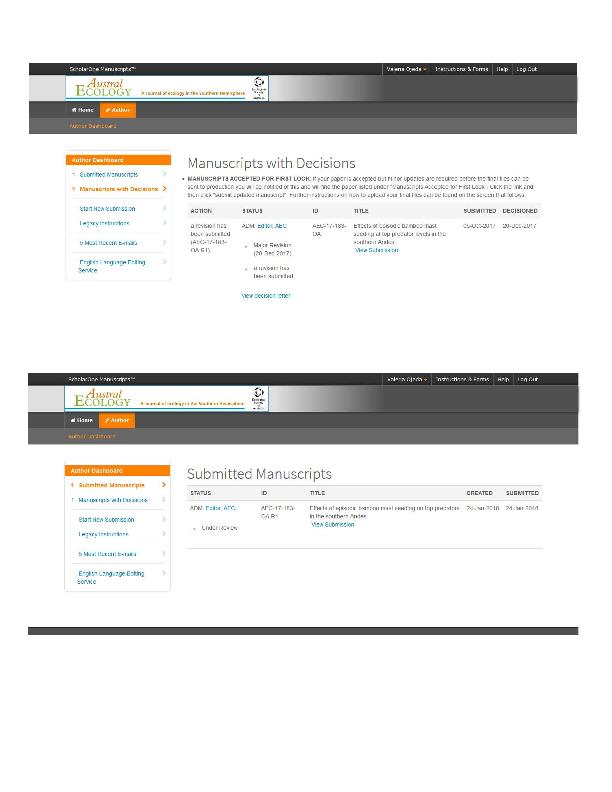Artículo
Effects of episodic bamboo mast seeding on top predators in the southern Andes
Fecha de publicación:
09/2018
Editorial:
Wiley Blackwell Publishing, Inc
Revista:
Austral Ecology
ISSN:
1442-9985
Idioma:
Inglés
Tipo de recurso:
Artículo publicado
Clasificación temática:
Resumen
Woody bamboos that undergo masting on a cyclic basis constitute large-scale endogenous disturbances in forests of America, Africa and Asia, driving long- and short-term effects on community structure and dynamics. Among the transient effects of these nonequilibrial phenomena are rodent outbreaks whose potential bottom-up consequences on top predators have never been explored. We investigated the effects of unpredictable rodent outbreaks on the assemblage of nocturnal raptors of the southern Andes after a large-scale (>140 000 ha), spatially heterogeneous, Chusquea culeou masting event in north Argentine Patagonia. We compared owl numbers and behaviours between pre-masting (2009) and post-masting (2011) at subsidized (outbreaking rodents) and unsubsidized (normal rodents) contiguous sites. Both generalist (opportunistic forest resident) and rodent-specialist (forest-facultative) owls were monitored, with emphasis on the resident territorial rufous-legged owl (Strix rufipes). The resident owls behaved as predicted, perceiving the rodent increases soon and gathering at subsidized sites, while apparently relaxing territoriality. Contrary to our predictions, later at the rodent outbreak phase, resident territorial owls turned inconspicuous, coinciding – causally or not – with an irruption of forest-facultative barn owls (Tyto alba tuidara), and influx of some open country short-eared owls (Asio flammeus suinda, some of which took a chance to breed in the woods). Considering the whole rodent outbreak period, besides significant changes in owls’ numbers, we recorded a notable adjustment in owls’ foraging modes in response to food surplus (consuming prey heads only), and null interference behaviours among all observed species. This study provides a first quantitative assessment of the effects of bamboo episodic masting on top carnivores globally, and contributes novel data on the indirect effects of these events in forests of South America.
Palabras clave:
OWL
,
PREDATOR PREY SYSTEM
,
PULSED RESOURCE
,
RODENT OUTBREAK
,
STRIGIFORM
Archivos asociados
Licencia
Identificadores
Colecciones
Articulos(INIBIOMA)
Articulos de INST. DE INVEST.EN BIODIVERSIDAD Y MEDIOAMBIENTE
Articulos de INST. DE INVEST.EN BIODIVERSIDAD Y MEDIOAMBIENTE
Citación
Ojeda, Valeria Susana; Chazarreta, María Laura; Effects of episodic bamboo mast seeding on top predators in the southern Andes; Wiley Blackwell Publishing, Inc; Austral Ecology; 43; 6; 9-2018; 719-729
Compartir
Altmétricas




